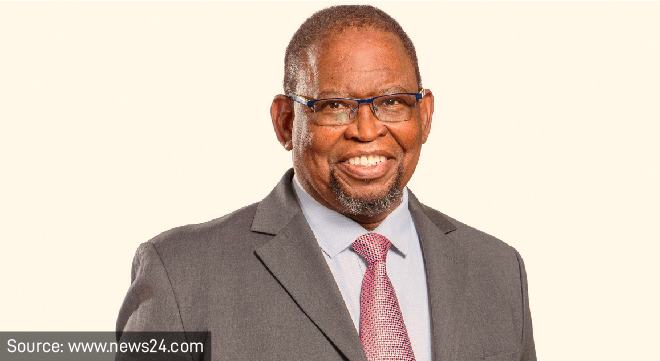National Treasury issued a statement on Friday afternoon in response to the announcement by the Financial Action Task Force (FATF) that South Africa has been named as “a jurisdiction under increased monitoring”, otherwise known as grey-listing.
Read: How is grey-listing likely to affect South Africa?
Treasury said the FATF recognised South Africa’s “significant and positive progress” made in addressing the 67 recommended actions or deficiencies highlighted in the mutual evaluation report published in October 2021.
Nevertheless, the FATF assessed that the country needs to make further and sustained progress in addressing the eight areas of strategic deficiencies related to the effective implementation of South Africa’s anti-money laundering/combating the financing of terrorism (AML/CFT) laws.
These action items requiring attention by South Africa were adopted by the FATF Plenary on 24 February, and the country is expected to address these deficiencies by no later than the end of January 2025.
‘Limited impact on financial sector’
National Treasury said it has noted that none of the items on the action plan relate directly to preventive measures in respect of the financial sector. “This reflects the significant progress in the application of a risk-based approach to the supervision of banks and insurers.”
Treasury therefore expects that the increased monitoring will have a limited impact on financial stability and costs of doing business with South Africa. This will, however, be monitored closely.
“Importantly, the costs of increased monitoring will be substantially lower than the long-term costs of allowing South Africa’s economy to be contaminated by the flows of proceeds of crime and corruption,” Treasury said.
Here are the eight action items
The eight strategic deficiencies identified by the FATF require South Africa to:
- Demonstrate a sustained increase in outbound mutual legal assistance requests that help facilitate money laundering/terrorism financing (ML/TF) investigations and confiscations of different types of assets, in line with its risk profile.
- Improve risk-based supervision of designated non-financial businesses and professions (DNFBPs) and demonstrate that all AML/CFT supervisors apply effective, proportionate, and effective sanctions for non-compliance.
- Ensure that competent authorities have timely access to accurate and up-to-date beneficial ownership information on legal persons and arrangements and applying sanctions for breaches by legal persons of their beneficial ownership obligations.
- Demonstrate a sustained increase in law enforcement agencies’ requests for financial intelligence from the Financial Intelligence Centre for its ML/TF investigations.
- Demonstrate a sustained increase in investigations and prosecutions of serious and complex money laundering and the full range of TF activities in line with its risk profile.
- Enhance its identification, seizure and confiscation of proceeds and instrumentalities of a wider range of predicate crimes, in line with its risk profile.
- Update its TF risk assessment to inform the implementation of a comprehensive national counter-financing of terrorism strategy.
- Ensure the effective implementation of targeted financial sanctions and demonstrating an effective mechanism to identify individuals and entities that meet the criteria for domestic designation.
Comment: Many of the above “action items” clearly speak to the deficiencies in South Africa’s ability or willingness to enforce its laws in respect of corruption and the financing of terrorism.
Read: EXPLAINER: How did South Africa end up on the grey list?
Cabinet is ‘committed’ to addressing the deficiencies
Treasury said Minister of Finance Enoch Godongwana has informed the president of FATF, Raja Kumar, that the Cabinet was committed to work with the FATF and the Eastern and Southern Africa Anti-Money Laundering Group “to swiftly and effectively address all outstanding deficiencies and strengthen the effectiveness” of South Africa’s AML/CFT regime.
Treasury said the government has already demonstrated its commitment to implementing the recommended actions, including “the speedy enactment” of two major pieces of legislation, to address some of the technical deficiencies identified in the mutual evaluation report.
Dovetail with anti-corruption efforts
The government “recognises that addressing the action items will be in the interest of South Africa, and that doing so is consistent with our existing commitment to rebuild the institutions that were weakened during the period of state capture, the effectiveness of which is essential to addressing crime and corruption.”
The action items therefore form part of the government’s broader commitment to combat financial crime, corruption and state capture, as announcement by President Ramaphosa in October last year in response to the findings and recommendations of the Zondo Commission, Treasury said.
“The need to address the action items is also consistent with the national strategy on AML/CFT, which was adopted by Cabinet in November 2022, and will help strengthen the fight against financial crimes in the country and assist in preserving the integrity of the country’s financial system.”




[…] Read: Treasury responds to FATF action plan for SA to fix its ‘dirty money’ problems […]